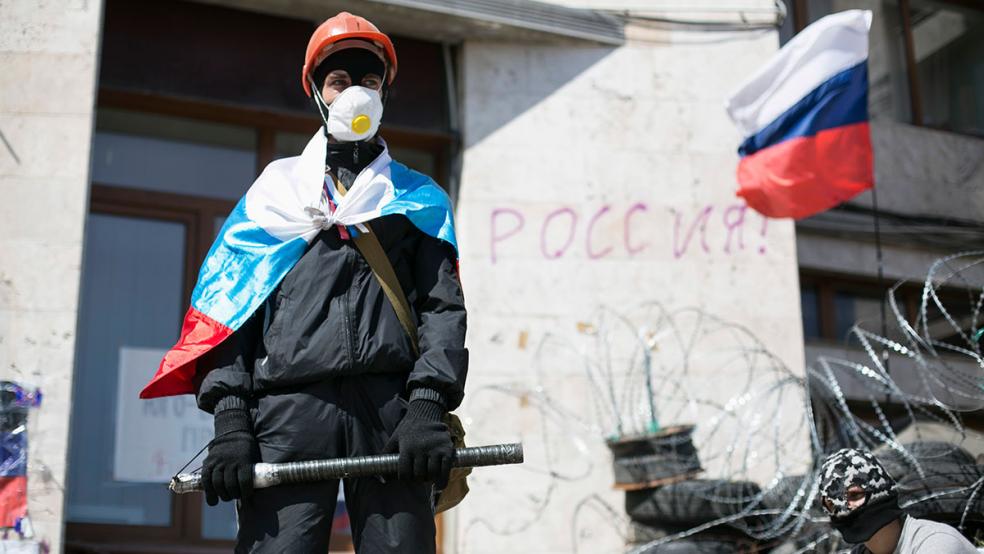In the wake of Russia’s invasion and annexation of Crimea – a process that took a matter of weeks – proponents of military-based responses from the West are calling for steps that would take years to implement.
The proposals range from revisiting missile defense plans in Europe to increasing military spending, as well as expanding EU and NATO membership to include countries like Ukraine, Georgia and Moldova – all with the intention of deterring Russia.
NATO-Ukraine relations began in 1991, and in 2008 allied leaders agreed that the country could join the organization in the future. That process has since stalled.
Related: Why Putin’s Adventure in Ukraine Is Doomed
“Neither Ukraine nor Georgia is currently on a path to NATO membership, and there have not been any immediate plans for expansion of NATO’s membership,” President Obama said on March 26. “Part of the reason that the Ukraine has not formally applied for NATO membership is because of its complex relationship with Russia. I don’t think that’s going to change anytime soon, obviously.”
So far, the U.S. and its European allies have rejected a military response to events in Ukraine, even though the Ukrainian military has exchanged gunfire with pro-Russian separatists. Instead, the Obama administration has focused on targeted sanctions.
Sen. John McCain (R-AZ), one of the Obama administration’s harshest foreign policy critics, has said the U.S. should do more. Speaking in Lithuania last week, McCain laid out his recommendations for supporting Ukraine and its neighbors.
“The West must provide far greater diplomatic, economic, and military support to Ukraine – including a long-term program to assist them in reforming and rebuilding their armed forces,” he said, adding that if countries like Ukraine and Moldova “meet the rightfully high standards for membership, the doors to NATO and the EU remain open.”
Related: How Europe Could Finally Call Putin’s Bluff
McCain also called on all NATO members to set a baseline for military spending. “Considering what President Putin is doing right now in Ukraine, it is more important than ever for every NATO ally to spend at least 2 percent of its GDP on defense,” he said.
At a Thursday meeting in Geneva, the U.S., Russia, Ukraine and European Union agreed on a framework for defusing military tensions in the region. On the same day, Senate Minority Leader Mitch McConnell (R-KY) called for military assistance to Ukraine.
“Here is what I would do: I would be sending arms to the Ukrainian army,” McConnell said during an interview with a Kentucky radio station. “I would encourage the European Union to expand and take in Ukraine. I would re-engage with the Poles and the Czechs and see if we can’t get missile defense back in those countries.”
However, the logistics of providing Ukraine with U.S. weaponry would still be time-consuming, according to some military experts.
Related: How Putin Awoke NATO’s Sleeping Giant
“Regardless of how fast we could deliver them, there would be a significant lag before they could be used,” said Steven Bucci, a former Army Special Forces commander who’s now a director at the Washington-based Heritage Foundation. “They do not have any knowledge or experience with U.S. gear.”
White House officials have questioned the strategic value of military aid to Ukraine, in addition to their warnings that such assistance could escalate tensions.
“The facts are these: Even if assistance were to go to Ukraine, that is very unlikely to change Russia's calculus or prevent an invasion,” Tony Blinken, deputy national security adviser, said last month on CNN’s “State of the Union” program.
To Reads from The Fiscal Times:





